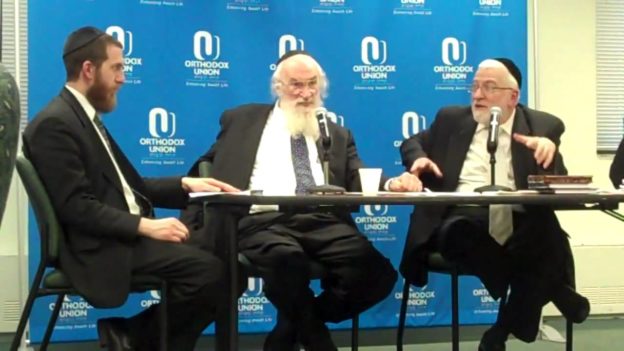In an article for the Jewish feminist group JOFA, Dr. Noam Stadlan objects to what I wrote in the Forward about the Orthodox Union’s stance on women being appointed as Jewish clergy.
His objections are several, and I will respond briefly to each below. But, as explained a bit further below, the doctor glosses over the most salient, central point of what I wrote.
Dr. Stadlan is correct that I did not acknowledge the fact that there are Orthodox circles where women study Talmud. My apologies for that omission, but what texts are appropriate for formal teaching of women was not my topic.
Whether any recognized poskim consider it proper for women to speak before men was likewise not my topic. My en passant reference to women speaking to women was written from my personal experience (though not only in “haredi” shuls), and I apologize here too if it inadvertently insulted anyone.
I strongly disagree, though, with Dr. Stadlan’s stark judgment that it is somehow out of bounds for someone like me who looks to haredi poskim for guidance to offer an opinion about a challenge faced by a “Modern Orthodox” organization committed to halacha. I think, on the contrary, that it reflects a feeling of concern for other halacha-respecting Jewish communities than one’s own. (Incidentally, as the bio at the end of my Forward piece indicates, I wrote my piece as an individual Jewish blogger, not in the name of Agudath Israel, which is mentioned only afterward for identification purposes.)
Most important, Dr. Stadlan seems to misunderstand the essence of what I wrote. I did not set out to make a halachic case “against the ordination of women.” I am not qualified as a posek, and would never arrogate to write as one. It may well be the case, as some writers cited by Dr. Stadlan assert, that a “halachic case can be made for the ordination of women.”
What I wrote – and this is the central point Dr. Stadlan somehow misses – was that the question of women rabbis, which may be a legitimate one and is certainly one of great societal import today, was responsibly placed by the Orthodox Union before poskim to whom it looks for halachic guidance.
There is, pace Dr. Stadlan, no Jewish concept of halacha divorced from recognized poskim qualified to apply halachic principles (and, yes, meta-halachic principles no less, which have always been and remain very much part of reaching authoritative halachic decisions). Whom one turns to for a psak is one’s own business, but acknowledging that there are widely recognized and respected poskim in various communities (be they “centrist”, “yeshivish”, or any particular flavor of Chassidic) is not a “no true Scotsman fallacy”; it is the very essence of how halacha has been applied over history to new circumstances – and how it must be responsibly applied today.
